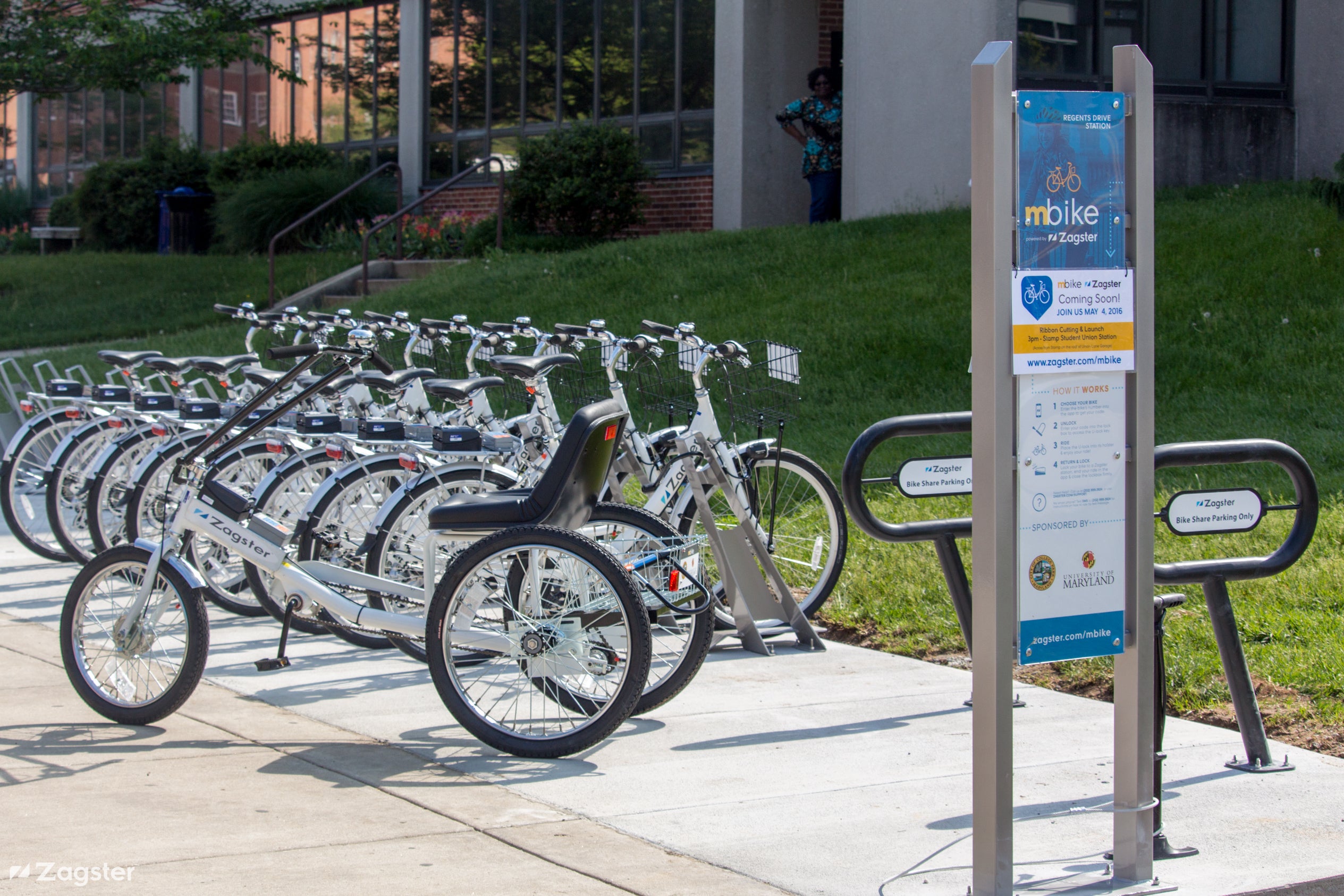Several cities in Wisconsin have been exploring bike share programs in the past several years, and more communities may sign on as emerging technology reduces the capital investment required to launch bike share systems.
The Superior City Council recently signed off on using public money to help kick-start a bike share program. Superior joins cities such as Madison and Milwaukee that have installed stations where people can share and use bikes on a short-term basis.
Superior Mayor Jim Paine has been working to bring such a program to the city with the bike share company Zagster. Members of the city council voted to contribute $18,000, a quarter of what’s needed, to support the program, Paine said.
News with a little more humanity
WPR’s “Wisconsin Today” newsletter keeps you connected to the state you love without feeling overwhelmed. No paywall. No agenda. No corporate filter.
“It could end up being much smaller than 25 percent if other members of the community get on board,” he said. “We are going to have four stations and the city of Superior will sponsor one of those.”
The program will cost $72,000 for four stations and 20 bikes in the first two years. City officials plan to pursue private sponsorship to pay for the remainder of the cost to kick-start the program.
Daniel Petkanas, a spokesman with Zagster, told the Superior City Council at its Tuesday, Aug. 1 meeting that the company is different from traditional bike share programs because it requires less infrastructure due to locking technology on the bikes.
“Because the lock is on the bike itself it allows the user to lock the bike up mid-trip. For example, somebody can take a bike from (a) Zagster station, ride to the supermarket, they’re able to lock their bike up to any public bike rack or pole, do their shopping, come out, unlock the bike and return it back to a Zagster station,” he said. “Having the locking technology on the bike itself versus on the docking stations allows it to be flexible in the community.”
The hardware on the bikes used to track and secure them is also making bike share programs more affordable to Wisconsin communities, said Dave Cieslewicz, executive director of the Wisconsin Bike Federation.
“All of the computer information that you need is on the bike itself,” Cieslewicz said. “Basically, you look at your smartphone. You see the location of the bikes, and you go pick one up. That system is a good deal less expensive.”
Wisconsin-based Trek subsidiary BCycle has also begun implementing similar technology with its latest bike share equipment BCycle Dash. Dash offers the company’s first ever smart bike with a touch screen display, onboard GPS, and locking integrated to the bike, said Laura Andrews, communications manager for BCycle.
“It is a lower infrastructure product, and it does come in at a lower cost because at that point you can get more bikes on the street because you’re not having to invest in smart dock stations,” she said.
Andrews said the new technology is roughly half the cost of their traditional smart-docking stations, which can cost around $5,000 per bike on average when including the kiosk and station.
However, the technology also raises questions about the potential to steal bikes. But, Andrews said they don’t see a ton of theft.
“One of the reasons is because the bikes are GPS-enabled,” she said. “In order to check out a bike, you would need to set up an account, which keeps you accountable to where your bike has gone and the trip of the bike — whether it’s closed or not.”
Communities around the state have been exploring bike share programs to attract visitors and retain residents, address congestion and parking, and reduce their carbon footprint. Eau Claire, La Crosse and Fond du Lac are among several cities that have been studying or pursuing bike share programs in the last several years.
Expanding Existing Programs
Bublr Bikes in the Milwaukee area has seen interest in its nonprofit bike share program grow since it launched several years ago. Sally Sheperdson, executive director for Bublr Bikes, said some of the business improvement districts have purchased stations because they view them as an economic driver.
“Young people really like bike share, and especially in the greater Milwaukee area,” she said. “A lot of downtown workers intentionally don’t even have cars, so this has been a big boon to that population.”
The program, which began with a handful of stations, now includes up to 60 bike stations. Sheperdson anticipates the program will grow to include 100 stations with up to 750 bikes in the coming years.
Madison’s bike share system, which is owned and operated by BCycle, has also seen additions to its program since it launched in 2011. The system now includes more than 35 stations with 350 bikes in downtown Madison. Wisconsin Bike Fed’s Cieslewicz said bike share programs are a way to sell a community to potential residents.
“When you’re in competition for mobile talent — people who can live anywhere — those folks are generally looking for a variety of amenities in a place, and bike share tends to be one of those things they look for,” Cieslewicz said. “It kind of signals a progressive city, a city that’s on the cutting edge. It’s sort of the way to put your city on the map.”
Around 1,400 cities have launched bike share programs worldwide.
Wisconsin Public Radio, © Copyright 2026, Board of Regents of the University of Wisconsin System and Wisconsin Educational Communications Board.

